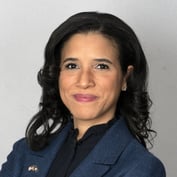When the Centers for Medicare & Medicaid Services (CMS) sketched out draft rules for the 2017 individual major medical open enrollment period, one section dealt with Web broker entities (WBEs).
CMS, the agency that oversees all Patient Protection and Affordable Care Act (PPACA) public exchanges and runs the HealthCare.gov exchange enrollment for states that choose not to run their own enrollment systems, suggested that HealthCare.gov could simply provide PPACA benefits eligibility determinations for the WBEs, and that the WBEs could handle the rest of the tasks involved with getting people enrolled in public exchange plans.
CMS suggested that the WBEs ought to meet certain exchange plan display and sorting standards, to keep the public exchange system competitive and fair to all the players.
Representatives from two of the more transparent state-based exchanges, Covered California and Connect for Health Colorado, say CMS ought to be paying much more attention to service standards.
See also: What agent groups hate about proposed 2017 PPACA World rules
Peter Lee, the executive director of Covered California, has told CMS in a comment letter that, if CMS wants to expand the role of WBEs, it needs to develop much tougher rules governing how WBEs display plan information and how well they support consumers.
A WBE should commit to specific staffing service standards; employ well-trained advisors who can help consumers over the phone, in person and online; have the ability to take the documents needed to resolve application inconsistencies via the Web; and, in general, handle most of the customer service work HealthCare.gov or a state-based exchange handles, Lee writes.
“One of the valid rationales for using WBEs is to take the workload and expenses off of the federal or state-based call center,” Lee says. “This value proposition requires the [federally facilitated exchange] to put clear standards in place.”








 January 12, 2016 at 06:51 AM
January 12, 2016 at 06:51 AM










